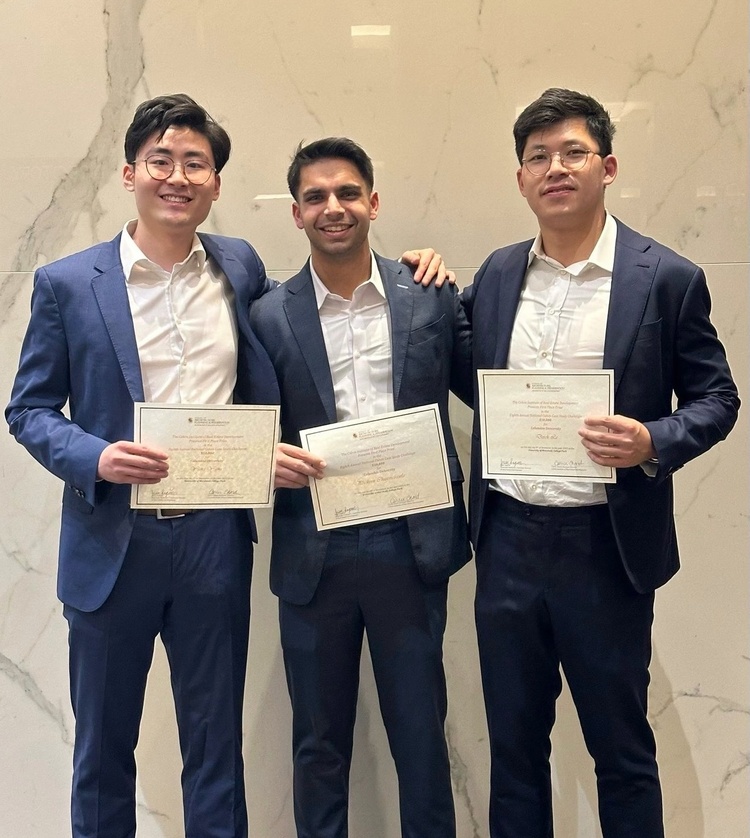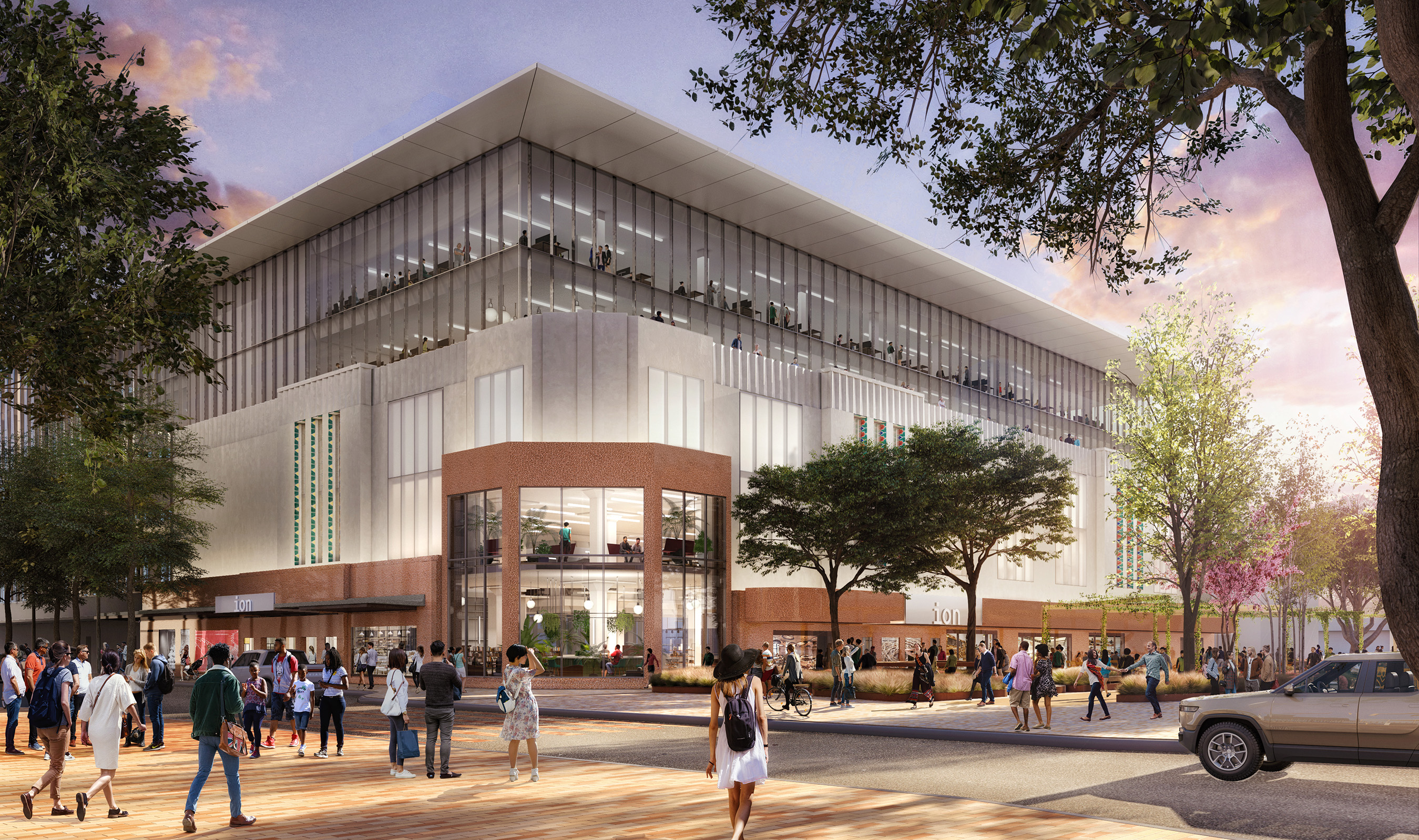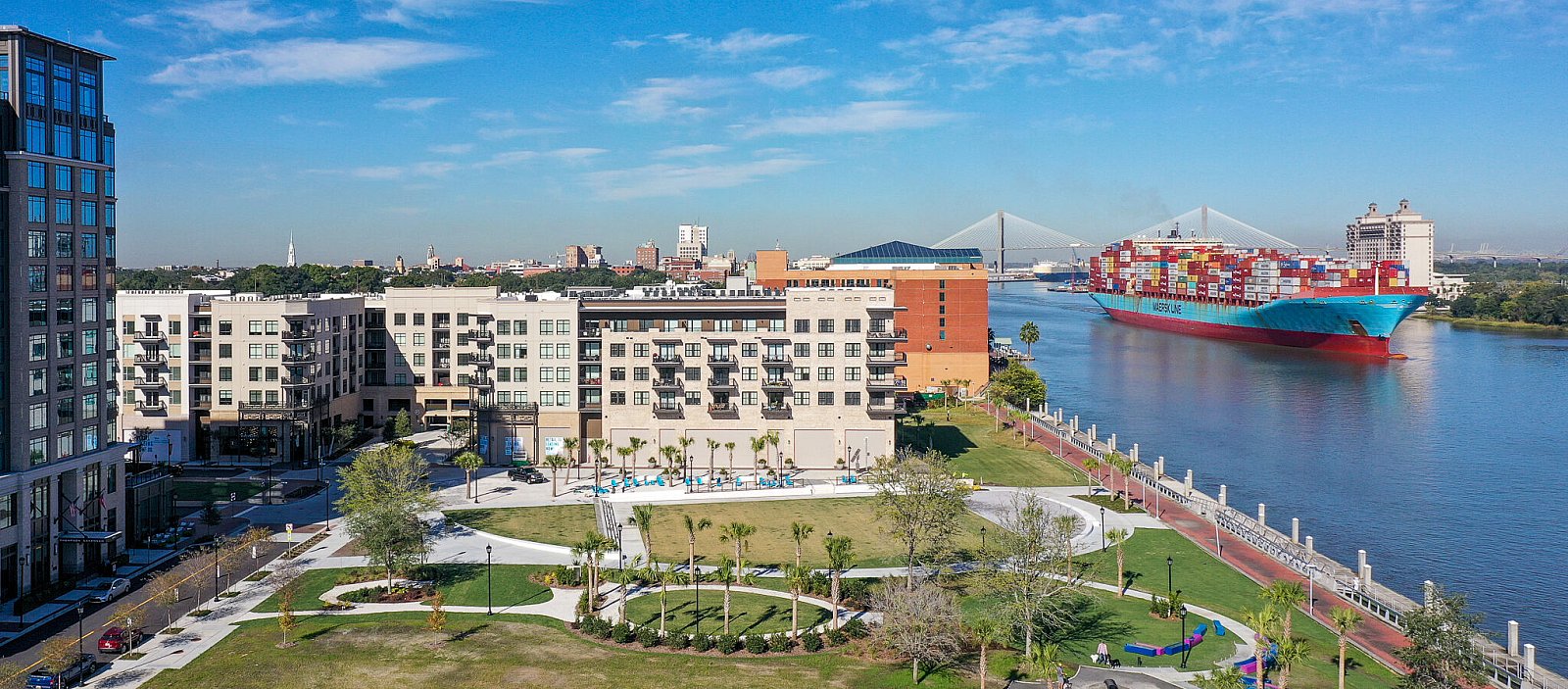Hungry for next-gen talent in your company’s corporate real estate or development pipeline? A just-completed case study challenge staged by the Colvin Institute of Real Estate Development within the University of Maryland’s School of Architecture, Planning and Preservation offers a glimpse of that talent at work. And the case studies themselves offer glimpses of developments where such talent may cluster.
A common theme? Flexibility and adaptability in navigating the pandemic.
A 25-page case study from a team at Columbia University about the One Boerum Place condo-turned-rental development in Brooklyn, New York, took first place and the $10,000 first prize. A study of the Ion innovation district in Houston from University of Houston students came in second, receiving a boosted total of $5,000 thanks to a recent $200,000 grant from the Wells Fargo Foundation to support multiple programs at UMD. A study of the Riverworks Eastern Wharf development in Savannah from a team within Clemson University’s Master of Real Estate Development program took third place. And a University of Buffalo team’s study of the Seneca One project in Buffalo received honorable mention.
Since 2016, the University of Maryland has hosted the Colvin Case Study Challenge for full or part-time students enrolled in a college or university real estate program. The goal of the competition is to “hone professional skills and reveal the knowledge base and understanding of markets, project valuation, finance, urban design, sustainability, entitlement processes and operational issues.”
“The Colvin Institute Case Study Challenge brings together students who are pursuing degrees in real estate across the U.S.,” said Dr. Dawn Jourdan, dean of the University of Maryland School of Architecture, Planning and Preservation, in a release. “This opportunity provides students the ability to showcase the skills they are learning on a national stage, receiving mentoring and feedback from professionals in real estate and the allied fields. It is a crown jewel of the activities sponsored by the Colvin Institute.”
The competition is named for the late Baltimore developer John Colvin, who founded the Colvin Institute of Real Estate Development in 2008. The institute supports the “interdisciplinary approach of UMD’s Master of Real Estate Development curriculum, which comprehensively covers finance and capital markets, law and public policy, structure and site design, construction management, property, portfolio and asset management as well as marketing and commercial leasing.”
The executive summary of the Columbia students’ prize-winning report proclaims that the $250 million One Boerum Place development, spearheaded by Avery Hall Investments in collaboration with Allegra Holdings and Aria Development Group, “stands as a testament to adaptive resilience and strategic urban development.” The mixed-use residential and com¬mercial building was developed on a triangular lot purchased for $76.5 million in 2016 from Brooklyn Law School.

Phakorn Chansrichawla, Yang Yang and Derek Le from Columbia University’s Master of Real Estate Development program took first place in the Colvin Case Study Challenge.
Photo courtesy of Columbia University
|
In their case study, students Phakorn Chansrichawla, Yang Yang and Derek Le cite David Carlos of Savills Studley, who noted “the ongoing trend of non-profit organizations leveraging their real estate assets to sup¬port future initiatives. This transaction represents the law school’s most recent land sale, contributing to its efforts to increase the school’s endowment, which has doubled over the past five years to approximately $225 million.”
By way of context, the students document that Downtown Brooklyn is one of Brooklyn’s fastest growing neighborhoods, with a total population of more than 65,000 and a population growth rate of 16.5% that is triple the rate of New York City as a whole. The area is home to some 84,000 jobs with a strong influx of tech jobs over the past decade. Moreover, “77% of residents have a bachelor’s or graduate degree, with the median household income of Downtown Brooklyn at $156,977.”
A pivot from condo to rental was crucial to the project’s success. So were purchased additional air rights from adjacent lots totaling 50,000 sq. ft. of development rights and enough affordable square footage to qualify for New York City’s 421-a tax abatement program. By 2022, One Boerum Place’s 138 units, totaling 250,000 gross sq. ft., were fully leased and retail space was coming online.

Second place in the Colvin competition went to the team of Joseph Tran, Hunter Canales and Kaleab Andy from the University of Houston, who completed a case study about the Ion Innovation District that has welcomed tenancy from partner Chevron, among others.
Rendering courtesy of Chevron and The Ion
|
The tax abatement enabled Avery Hall “to have three maximum years of abatement during construction period, full abatement for two years of operational period and eight years of abatement phase out,” the students write. “This aspect of the project was crucial to the success of a rental project, as the firm needed to have certain benefits guaranteed to ensure that pivoting from a condominium project to a rental project would pencil out. These benefits allowed the switch and were key to convincing all capital partners.”
The Colvin Institute’s archive of past competitions is another resource savvy employers can explore to connect with strong programs and students from around the country. Last year’s Colvin winner was a team from Pepperdine University with their study of the Talaria Burbank development. Semifinalists came from Clemson, NYU and Baruch College. The 2021 competition’s first prize went to a team from University of Colorado Boulder for their study of McGregor Square in Denver, with semifinalists from (once again) Clemson, the University of Maryland and Auburn University.

Even a fire a few years ago did not sidetrack the momentum of Riverworks Eastern Wharf in Savannah, a mixed-use development that’s part of a broader waterfront redevelopment in the growing Georgia city. The project was the focus of third-place winners Paul Good, Jordan Smith and Zion Kaauwai from Clemson University’s Master of Real Estate Development program.
Photo by J. Michael Worthington, Jr. (www.worthingtonimages.com) courtesy of Choate Construction
|
|